Overcoming sensory meltdowns can be a real challenge. For parents in a household where sensory challenges are common, having an understanding of what’s really going on with self-regulation and sensory processing is even better. Today, I have information on sensory overload meltdowns as well as a powerful tool for addressing this sensory need in families, so that the child struggling has resources and strategies available to them. Understanding meltdowns is one of the first steps in addressing sensory challenges.
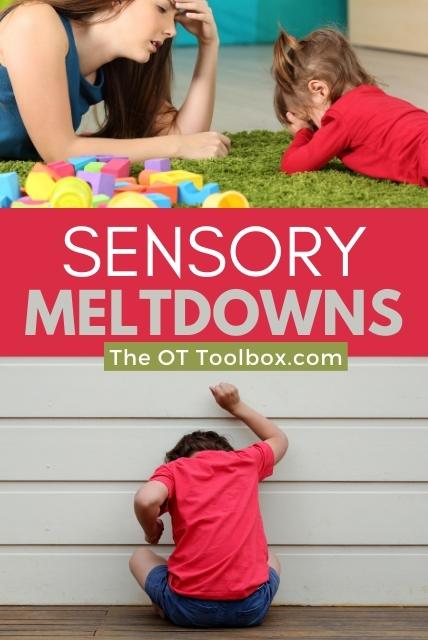
Sensory Meltdowns
I’ve shared before the difference between a sensory meltdown vs a tantrum…but that defining line can be hazy when it comes to sensory overload.
I’ve also shared many meltdown tips and tricks to address sensory meltdowns in children, as well as coping tools and sensory strategies that can help children.
There are also many sensory diet tools and resources here on this website, which can be valuable resources for the child with sensory processing challenges.
But all of these strategies, resources, and tools can be inconsequential if you are missing an important piece of the sensory puzzle.
Understanding what’s really going on behind a meltdown is the key component to helping children who struggle with sensory overload.
There’s more; Once you’ve got a handle on really understanding a meltdown and the specifics on what might cause them, it’s important to know how to help the child that does launch into meltdown mode.
Because, even with all of the understanding in your back pocket, there will still be those moments where a meltdown is inevitable. So, having the resources and tools available to help a child debrief after a meltdown is crucial.
Debriefing with your child after a meltdown is such an important step for both of you. Having the ability to compose oneself following a meltdown and really understand what might have caused that overload empowers your child so that they can discover their own self-regulation strategies. What an empowering concept, right?
Not only that, but getting an understanding along with your child of that sensory meltdown gives you both specific strategies and tactics to help overcome those sensory meltdowns the next time they might occur. You can define and discover their triggers.
All of this makes sense, right? But if working as a pediatric occupational therapist has taught me anything, it’s that addressing feelings of overwhelm with sensory processing take some time.
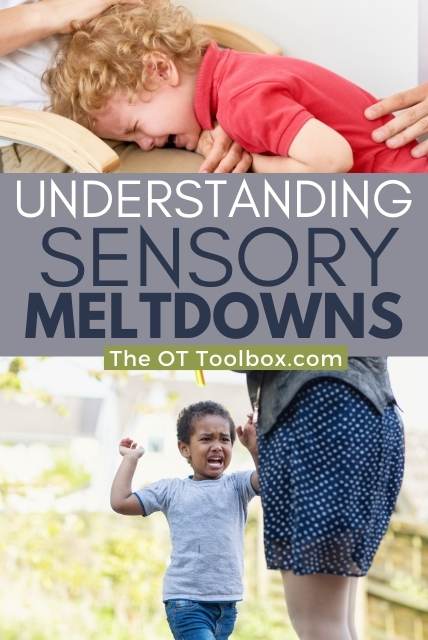
Sensory Questions
There are so many common questions that parents have about sensory processing and sensory meltdowns. Below are listed some common sensory questions that parents have. Sometimes just knowing you are not alone in your questions and concerns is helpful! So, those questions that oftentimes come up include:
Parents often times feel overwhelmed or stressed with how to respond to their child’s meltdowns. If this sounds familiar, you might be questioning if your child’s behavior is sensory or if it’s defiant behavior.
Parents wonder if the behaviors their child has is a temper tantrum or if it is a response to sensory overload and having a meltdown.
Many times, parents see meltdowns that seem to come out of nowhere. You can’t seem to figure out what the triggers are. Where do you even start?
Or, maybe you know your child’s meltdowns are sensory related, but nothing you’ve tried seems to work. You wonder if maybe you’re Googling the wrong things or if there is something you’ve missed.
Parents often feel like their child is just trying to get attention, and that it’s behavioral rather than sensory related.
Another question that parents often have is regarding the aggressive behaviors they see from their child. What can cause a child to act out so physically with hitting, spitting, head banging, biting, scratching, and yelling? These actions are physically and emotionally exhausting for both you and your child.
Still other questions that parents have regarding meltdowns is how to better understand their child and help them feel accepted?
Parents often wonder how they can better recognize the signs of sensory overload so they can prevent it from happening in the first place.
A big question parents have is how they can stay calm in the moment when their child is in the midst of a meltdown. How can they help their child without “losing it” themselves.
Sometimes, just knowing that others have the same questions is so helpful.
Overcoming Sensory Meltdowns
If any of these questions sound familiar, I’ve got a resource for you. The thing is that sensory overload is one of the leading causes of sensory meltdowns, but it is far from the only cause. And, actually, there are sound principles that can help children in the midst of a meltdown.
There are tools you can have in your back pocket so you can address meltdowns when they are happening, and can shorten the duration and intensity of a meltdown. You can even help your child to recognize what’s going on when a sensory meltdown occurs.
Part of the strategy to get the answers to better understand exactly what’s going on behind meltdowns is to get to the root of the sensory needs.
This course can help you feel confident and overcome meltdowns with proven sensory integration tips, tools, and strategies to help your student self-regulate and give you both a toolkit of ways to minimize sensory related issues and even catch them before they escalate.
Sensory Overload Meltdown
To better understand what’s happening in a sensory overload meltdown, it helps to understand sensory integration.
This refers to the organization of sensation for use within the brain and body. Our body and sensory systems give information to our brain on the body in the environment.
The brain organizes all of that information it gets from the sensations. When the sensations flow in a well organized manner, the brain forms all sorts of perceptions, behaviors, and learning can occur. We can participate in the world around us.
However, there’s more to it. The nervous system operates best at an optimal arousal state. This means that the nervous system is able to attain, maintain, and regulate that information so we can complete meaningful and functional tasks. When the brain is not able to organize the incoming sensory information, it can become too much for the brain and body.
As a result, we see sensory compensations. The body attempts to compensate for organizing the information in ways that look different, but work for the individual. There may be sensory defensiveness. However, sometimes neurodiverse responses to the information isn’t sustainable and we see overload. This is the sensory meltdown.
A few tools we have is a school sensory room, or a sensory diet to plan for sensory needs.
This is a very simplified explanation that explains a sensory overload meltdown.
Check out the blog comments below to discover common questions about about sensory meltdowns.
Sensory Meltdown Strategies
Would you like to use some strategies designed to offer organizing input? Our sensory strategies resource has some great ideas.

Colleen Beck, OTR/L has been an occupational therapist since 2000, working in school-based, hand therapy, outpatient peds, EI, and SNF. Colleen created The OT Toolbox to inspire therapists, teachers, and parents with easy and fun tools to help children thrive. Read her story about going from an OT making $3/hour (after paying for kids’ childcare) to a full-time OT resource creator for millions of readers. Want to collaborate? Send an email to contact@theottoolbox.com.

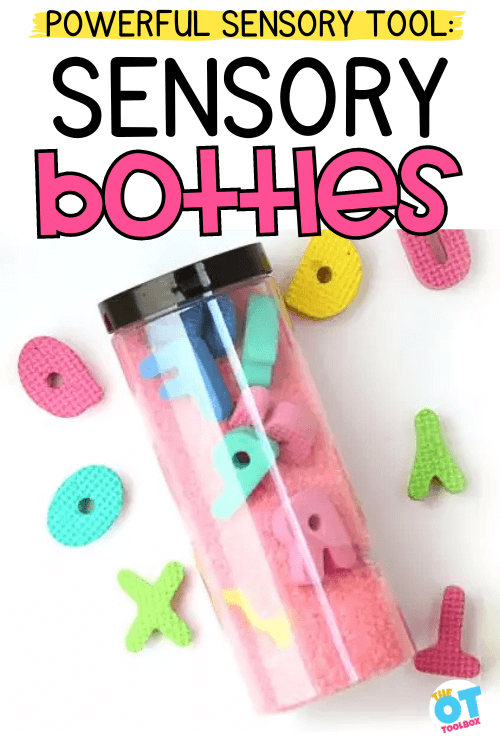
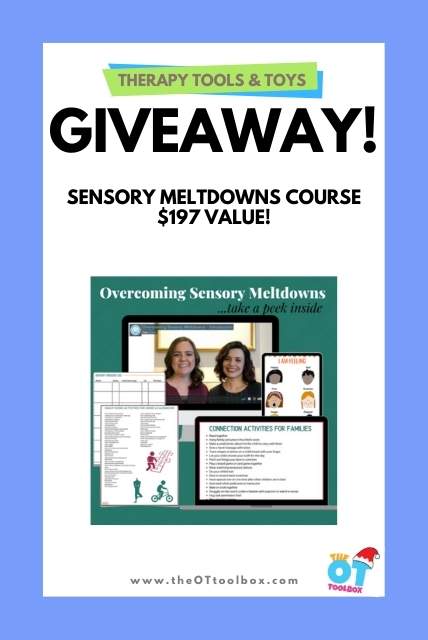
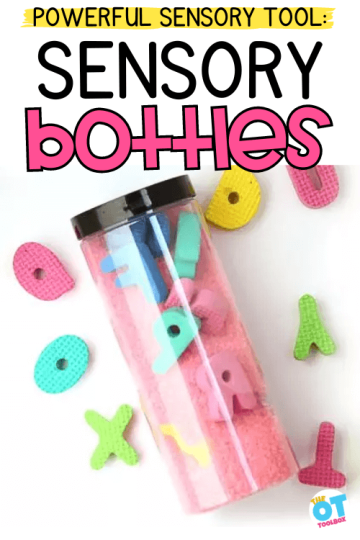
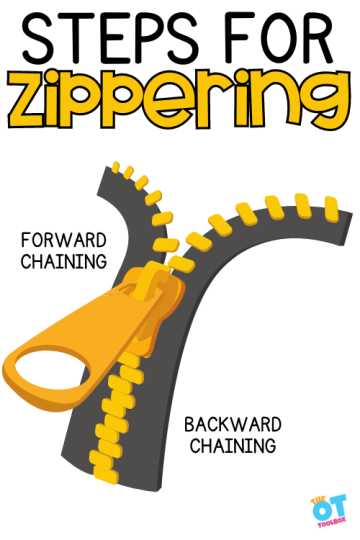
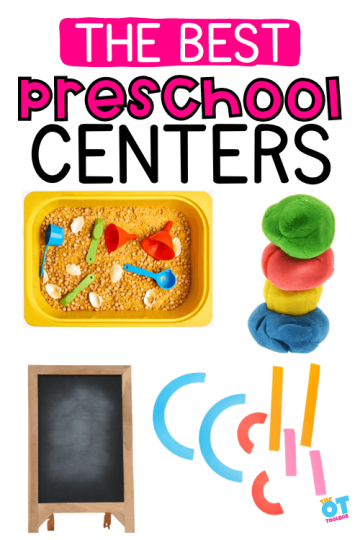
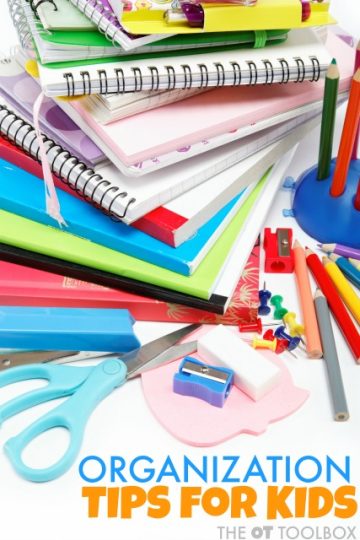

252 thoughts on “Sensory Meltdowns”
Is it a sensory meltdown if the child can’t calm down on her own? We are struggling to figure out what is causing our child’s meltdowns. She has just started OT and together we are all trying to figure out how to best help her.
I have many children who have sensory meltdowns, and the biggest struggle is helping the kids to identify what is going on with their bodies and recognize what is going on before it transpires into the total meltdown that is very hard to reverse. Would love more strategies to help kids with this
What are key differences between sensory meltdowns and tantrums? When can a sensory meltdown become a learned behavior?
What are the best methods in aiding a child through a sensory meltdown, both for parents and therapists/teachers? What are some strategies for self-soothing so a child can help themselves out of a sensory meltdown in case proper help isn’t available? Are there key features to a sensory meltdown that differentiate it from a general meltdown?
What is the difference between meltdowns and tantrums?
How can we teach teachers that sensory meltdowns aren’t behaviors that the child is controlling? Sometimes the environment needs to change to help the student.
How can a teacher with a classroom full of students or parents with multiple children give attention and support to a child during a meltdown occurs while also attending to the rest of the group?
How do you determine what strategies will help a student regulate during a sensory meltdown?
What considerations do you take to determine whether a child who has a history of sensory meltdowns would benefit more from top-down cognitive strategies vs. bottom up sensory comfort strategies?
need help with considerations of what this looks like with older children.
What strategies can you teach caregivers or the child to use to prevent the meltdown from happening? Are there signs that signal a meltdown may occur?
What strategies can be used with toddlers and prek students?
What are some strategies to help reduce the amount of sensory meltdowns that a person may experience?
I am always curious about strategies to use to support kids when they are flooded with emotion (in fight/flight/freeze). I’d love to know more!
There are so many approaches to helping/deescalating sensory meltdowns. These meltdowns are HUGE with caregivers and are always brought up to me. They need support when in these situations. I would love to take this course.
I just started working with PEDS and my caregivers raise concerns about sensory meltdowns more often than not. This course would be a lifesaver for me and my parents/caregivers.
How do you best help parents learn to identify between sensory meltdown or behavioral meltdowns?
How do I stay react appropriately with a classroom full of kindergarten age students as well as keep the rest of the class from falling apart especially in those first one to two weeks of school?
Is there a study or research conducted that explains the best ways teachers have found to functionally incorporate strategies to prevent sensory meltdowns in specific children while also benefiting the rest of the class and not singling the child out?
What is the difference between sensory tantrums and meltdowns and viceversa?
Is there a way to help a young student having a sensory meltdown when they seem to be unreachable? I have a student who has meltdowns daily when he gets upset or overstimulated. Recently, he went under a table and would not let go of the legs. It took multiple adults to get him out. What are some tools I could use in that kind of scenario? Also, as an OT, how can I help his teacher so that he gets out of this cycle of meltdowns?
What are some environmental supports to helping a child through a sensory meltdown?
How do you handle meltdowns when the child is being violent (hitting, kicking)?
What’s a good way to articulate to caregivers the difference between a tantrum and meltdown?
How can we best coach parents to ID signs of upcoming sensory meltdowns?
How do you distinguish sensory meltdowns from maladaptive behavior/assent from the task pertaining specifically to children with ASD?
What is the best way to approach sensory meltdowns and tantrums with ABA as part of the team?
What can teachers do in their classrooms for students who experience sensory meltdowns often?
As a new graduate occupational therapist, it has been both a blessing and a struggle to work with kids that have ‘difficult’ behaviours – is it a learned behaviour, or are they experiencing sensory meltdowns? Some more information would be a great resource for myself and my team, to better educate parents and teachers, and to provide the best outcome for our kids.
Is it sensory or is it behaviour? Appears ok in school, and sensory overload appearance after school, how to implement strategies in school to prevent?
How can you tell if it is a behavior/temper tantrum or a sensory meltdown?
“Why are they acting out?” when parents really mean “is it behavior or sensory?”
How can you tell if it is a sensory meltdown or a tantrum? Then, with this information, how can this be relayed to individuals working with the child (parents/caregivers, teachers, etc.)?
How can a therapist assist a child when aggression (I.e. hitting and kicking) occurs during a sensory meltdown? What are some sensory based strategies to implement during this time?
This is an area that I continue to need all the support I can get so I can help the kids, teachers, and their parents. Sensory meltdowns heavily impact all involved and our kids can be treated horribly when people don’t understand what is going on inside of them.
When is a meltdown related to behavior and when it is sensory related?
This is a very interesting topic as well as a hard one to understand since all children are different. How do you create the “just right” sensory diet for a child experiencing a sensory meltdown?I know that children often get overwhelmed by a sensory system being too overwhelming. I would love to have ample training in this category for both my children and pediatric clients.
I’ve heard that once a child is at the point of having a meltdown, that there isn’t much you can do in the moment in terms of offering sensory supports… So my question is what are some warning signs or how can you tell when a child is heading down that road and needs sensory strategies to prevent a sensory meltdown?
As a new pediatric OT, I have a limited amount of resources on sensory meltdowns and related behaviors. What are some strategies that I can give the teachers when students have a meltdown in class? How do I get students to implement the sensory strategies to prevent a meltdown?
“Sensory” is a topic that I need more knowledge in to effectively understand and treat my students. I have so many questions, but one would be what is the difference between a sensory meltdown and a tantrum?
I’m always looking for more ideas of sensory strategies for a variety of ages. Feel like I get in a rut of suggesting same ones.
What is the best way to explain sensory meltdowns to a non-OT? No just families, but other staff you may work with.
How do you provide appropriate sensory in a crowded classroom?
Id like this course to help me explain sensory to teachers and to help me help my students. Right now I explain sensory meltdowns as a fight or flight reaction to a something that irritates their sensory system.
How would you advise early childhood educators in addressing sensory needs in the classroom and with parents?
How does a child receive a sensory diagnosis?
How to identify when a meltdown may be coming, and how to aid in stopping it from happening?
Who could not use this!? Working in a school for students with ASD, it is always tough to figure out which is which–behavior or sensory.
I would like to have a better understanding of how to help students in the school setting who struggle with sensory needs. I have limited knowledge in this area and I’m not sure how to tell the difference between a sensory meltdown/tantrum or behaviors.
Meltdowns and behavior and how to support kids/teachers/parents – Oh my yes!
I would love to learn more about the difference between “behavior” and sensory break downs, as an OT standpoint
What are the key differences to look out for when determining behavioral tantrum vs. sensory overload.
Is it sensory or behavior? I am asked this often by teachers and other therapists.
I often wonder how much a child can determine when this might happen so as to minimize the meltdown or work on replacement/calming before it gets out of control.
“How do I know if my child is melting down because of tiredness or not getting something they wanted or is it sensory overstimulation?”
How to tell if the behavior is a sensory meltdown or plainly tantrum?
Would love to know ideas for young children who have difficulty understanding emotions especially those with past trauma. Ideas for classroom teachers to be able to address specific needs of one student who is having difficulty when there is a whole classroom.
It is struggle to decipher sensory based overreactions versus “typical” meltdowns. I feel that OT is called in to make the call if it is behavior vs sensory. I would love to take this course to better assist with educational planning.
What is the best way to assist a student in preventing them from getting to a total meltdown? I have a student that once he is in a meltdown, will continue to have that meltdown for up to an hour!! The teacher, social worker, psych, and myself have tried many different strategies to aid this child. Also at times appears that he may be seeking out attention from staff.
I work with many children with sensory processing difficulties and it is so difficult to explain to teachers that the student isn’t tantrumming because being difficult but because they cannot handle all of the stimulation or process it appropriately. Hoping I win so I learn how to better explain it to staff and families so can get them to buy into helping the child before becomes overwhelmed.
Determining the function of the meltdown.
“Sensory meltdowns” could take at least 45 minutes to recover.
How to incorporate heavy work into daily routines? Guidelines for observation of sensory and how to write those observations!
Above comment was made by
Are there signs to help determine whether it is sensory meltdown vs a behavioral one?
How do you differentiate learned behaviors from actual sensory overload ?
Is an emotional meltdown due to fright/flight or freeze similar or a type of sensory meltdown? Would love to understand about both and approaches for them.
What are your best strategies/suggestions for handling meltdowns in a classroom where 2 or 3 students react to each others meltdowns?
Do you think some behaviors start as a sensory reaction/overload and become a behavioral one based on the response to the meltdown?
My child’s meltdowns only happen at bedtime on school nights, but they are very consistent. How do we get to the root of the problem and what strategies can we use to prevent them and calm her down when they do happen?
Thankyou for this wonderful resource!
What “emergency” strategies do you recommend for use at school or public places, for children who quickly escalate to violence if we miss helping them regulate at early trigger points?
In the school setting we have students with meltdowns all the time. It is often difficult to tell if it is a sensory meltdown or tantrum when they don’t have the vocabulary to tell you what is going on. I would love to learn how to tell the difference.
My own kid and some of my students have sensory meltdowns. The autistic students I work with are challenging and I would love to learn more as out this subject to help them be successful in the classroom. How do you get students to participate fully when they constantly just walk around the classroom. How to improve non-verbal students to participate more with fine motor tasks and sensory difficulties?
Thank you for offering this terrific course for a giveaway! It sounds very comprehensive and informative. In my work in early intervention, the most common questions I receive and often struggle to answer are the ones about how to know what is a sensory meltdown and what is a tantrum in children who cannot communicate, whether it be due to a social communication disorder like autism or an expressive communication disorder like apraxia. And similarly, how do you strike a balance between setting limits and supporting your child’s sensory needs in the moment when the meltdown is caused by a mix of sensory and behavioral triggers? I know it’s definitely not black and white!
How do you recognize a sensory meltdown in a typically developing child?
Is there a good way to give kids tools/strategies to easily communicate what sensation is overwhelming to them for in the moment?
My 2 year old has a tantrum or meltdown every time we have to change his diaper or pullup…this happens multiple times a day even though he has had his diaper changed since birth. No idea what the actual trigger is or ways around it.
A question I often get is: is X behavior caused by sensory or intentional behavior?
When do you know if a child is having a true sensory meltdown vs. a temper tantrum because he didn’t get what he wanted? I have a student that is very aggressive with hitting, kicking, biting, scratching, pulling hair, etc.
This is the first time I’ve heard the term “Sensory Meltdown”, but I know exactly what it means. Thank you for naming the thing I’ve encountered many times during this pandemic. What does it mean that my son only has them with me? I’m I triggering him or is it that he feels safe enough with me to meltdown? (I like to tell myself it’s the latter ?) And when he doesn’t meltdown (but we are barely getting through school work) is that because he’s self regulating or because he’s giving me the desired behavior (he’s a super people pleaser) and we are avoiding/stuffing the core issues and emotional distress?
What strategies can I give parents to help them recognize and understand sensory overload? Also, tools and strategies for children to use when they recognize they are overloaded.
What suggestions do you have to help educate staff that a child’s meltdowns/actions are related to sensory overload rather than just behavior?
Can a child have difficulties with sensory processing but the actions actually stem from a behavioral challenge, such as attention seeking or defiant behavior? As an OT, I work with multiple students who definitely have sensory processing needs but their aggression, avoidance, or defiant reactions seem to be more behaviorally rooted.
How do you address a child’s sensory needs while acknowledging and addressing the behavioral issues that are also a contributing factor?
What the difference between sensory meltdowns, tantrums, and seeking attention.
How can I help parents with kids who meltdown daily when I can’t figure out how to help them in my session?
What is the difference between a sensory meltdown and a tantrum? Is a question parents often ask
Can it be a combination of both?
Do kids who don’t learn coping skills tend to be more prone to anxiety/panic attacks then as teenager and adults? And if so, just saying that they will outgrow it is detrimental to their health and well being.
What are simple and non-disruptive strategies to use in a regular education classroom?
How to know if it’s a sensory meltdown or behavior?
Many parents have asked me, “how can you tell the difference between a sensory meltdown and a temper tantrum?”
How to help my coworkers understand the difference between a sensory meltdown and a temper tantrum?
How do you determine the difference between sensory response or behavioral response when presented with a non preferred activity?
Which model of OT (direct vs consultative) is most appropriate to target sensory melt downs at school?
My biggest challenge with sensory issues is determining if it’s truly sensory or if it’s behavioral. Is there an easy way to determine this in the school setting?
How do you talk to parents about the difference between sensory and behavior without them getting stuck on one or the other??
What tools can we use to help with a meltdown?
I have a hard time differentiating between sensory and behavioral , and sometimes it is both! This would be so helpful in identifying what is sensory, what is behavioral, and how to address that.
I have students who have sensory meltdowns as well as my own 24 year old child. This course looks amazing!!!!!
How do we provide teachers the tools to deal with a sensory meltdown ?
Is it sensory or is it behavior, how do you tell? I feel like sometimes the avoidance becomes a behavior but can turn into a sensory meltdown… I’ve always wanted to take a course similar to this. Awesome, thanks for making it available!
The age old question, sensory vs. behavior.
How do we educate parents and teachers to help children with sensory meltdowns?
What strategies can one offer teachers and parents to support learners who struggle with sensory meltdowns?
How to identify if it’s a sensory meltdown or a behavioral tantrum?
How do I tell if it’s a behavioral meltdown or a sensory meltdown?
I struggle to determine if it’s truly sensory or learned behavior when it comes to meltdowns.
Are/how are sensory meltdowns and ASD related? If a child has low ability to attend, what are some ways to help during sensory meltdowns in the classroom? One solution works for 1-4 minutes and then another solution is needed…
How can we support parents with differentiating sensory vs. behavior? How to promote carryover at home and at school?
Is is a sensory meltdown if it’s something they don’t want to do or if they don’t get their way?
I’m looking for strategies to try with the students. Being a COTA for 3 years, I’m now seeing so many meltdowns. I’m having a hard time breaking it all down, and providing answers to teachers and parents.
What are the main differences to identify between sensory meltdowns and tantrums? Can a sensory meltdowns become a learned behavior and what can be done to prevent that? I have a lot of preschool age kids on my caseload now who I see through teletherapy and parents are stressed and I ‘see’ so many sensory meltdowns and tantrums and would love some strategies to be able to help these already stressed parents. Thank you!
Sensory input during the meltdown can reinforce the behavior. What is the best way to react during the meltdown?
This is a must – my district just started a K-2 self-contained class (1:8:1) and the teacher and aide are struggling immensely due to the sensory challenges each of the students presents. This would definitely help me to help them.
What verbiage/tools/strategies can we use to share this info with teachers and other staff members to increase awareness, understanding, and intervention strategies?
I deal with sensory issues on a daily basis. This would be super helpful to learn how to better understand it and how to address it.
What are the differences between sensory meltdowns and tantrums. Can you spot a sensory meltdown before it starts or escalates?
My ongoing area that I continue to seek information on is how to best collaborate with Behavior teams at school when it comes to the sensory versus behavior question when views on the cause may differ. Sensory is an area that requires constant reeducation and research on so I would love to take this course!
What are the best ways to keep a child regulated and prevent sensory meltdowns before they happen?
How would interventions or strategies differ if you pinpointed whether it was a behavior/tantrum, a sensory meltdown, or both?
Moreover, I work with early intervention kids, some of them nonverbal or lacks necessary insight for grasping emotions. Is there still a debriefing of sorts that happens after a sensory meltdown? What will it look like?
I work with toddlers and their parents. I’m always looking for nice tools to share with parents
How can we help student recognize what is going on in their bodies before a sensory meltdown? For some students, they let things linger and then a bunch of little things build up into a big problem, leading to the meltdown. How can we help students meet their needs to avoid the meltdowns?
How do you explain to parents co- regulation when parents have difficulty controlling their own emotions during their child’s meltdowns?
How can I manage and respond (preventatively and appropriately) and support teachers at my school when these situations occur in the classroom with other students?
My question is how can we better treat those with sensory meltdown prior to them occurring? and if there’s a best method to easing client’s back to non-preferred activities after a meltdown?
How do we separate learned behaviors or other behaviors from sensory meltdowns?
When is the best time to talk to a child about strategies for their meltdown- during or when it’s over and they’re calm?
I would like some strategies to help address sensory meltdowns in toddlers and small children who are non-verbal.
How do you teach parents to understand the difference between a sensory meltdown and a behavioral meltdown?
I would love to learn some new tools and strategies to help my kids. Having good resources for staff and parents would be wonderful!!
The question I get so often is ‘How do I know if the child is just trying to manipulate me?’ The answer I give is that kids are not wired to be manipulators and behavior happens for a reason. We need to ‘listen’ to what they are communicating to us through their behavior to drill down to the root of the problem. It makes such a difference when parents and teachers understand. Thank you for this opportunity.
What a great tool to help differentiate between the 2. So many times during evaluations, mom talk about their kids having tantrums and think it’s all behaviors but when digging deeper, it’s not always behaviors and frequently it is do to sensory issues. When I start explaining the difference I usually get the “ah-ha” look from parents.
How do you anticipate a sensory meltdown is about to happen, specially in older children?
I have several kids who I have hard time identifying if they are having a sensory meltdown or if it’s behavioral, because the circumstances leading up to seem more behavioral to me.
I’m wondering what to do when my son seems content and then seemingly out of nowhere starts to have a melt down. I am not sure how to help him calm and it escalates very fast. I would love help with this!
What are your strategies to explain and address sensory processing and overload to teens vs young children?
How can you tell if the meltdown is sensory-related, communication-related, or self-regulation-related? Especially if the student is non-verbal.
How to tell the difference between a sensory meltdown and just a tantrum when dealing with a special needs child or a typically developing child?
How can you tell that a child is throwing a tantrum versus a sensory meltdown?
Difference between sensory and self-regulation.
I work with preschool children with autism. This would be a great course for me to take to better understand how to help!
As much as I try to help teachers and families with ideas for preventing sensory meltdowns, I frequently don’t feel successful and would love more specific options for understanding and helping behavior, especially now with distance learning.
Sensory meltdown or tantrum/behavior is the biggest thing I question with sensory.
How can I support the child’s sensory needs during a meltdown while also addressing any behavioral components?
How do you tease out the difference between a sensory meltdown, behavior and sleepiness/hunger? What is the best way to prevent them from occurring? Are there any quick fixes?
What are strategies to use to stop a meltdown before it gets out of control and thus longer to bring to a self-regulated state? how can I assist teachers and parents with strategies?
I would like information about sensory meltdowns in age specific ranges. Thank you!?
When is it too far to challenge or push a transition after giving a time of calm and rest?
I think this course would be a great refresher and learn new strategies that could be passed on.
What is the best way to address sensory meltdowns with student who have mental health issues?
I would love to go on this course. I am a newly qualified therapist who is excited to work with children after comms serve ❤️
Where is the line between a true sensory meltdown and a learned behavior because the child likes the response?
It would be great to learn from this course practical things I can use with my students. My question is what are some early indicators of a sensory meltdown and what are some ways we can prevent it from escalating?
About 90% of my caseload is sensory based! I’ve only been out of school 2-3 years and have SOOOO much more I could learn!! I multiple kids in my family that have sensory needs as well and I’ve learned it’s much harder to present family with tips and tricks then a patient. I would love to keep increasing my knowledge bank to help with that as well!!
How can we better educate other professionals about the difference between sensory meltdowns versus behaviors?
I would also love to learn strategies to target sensory meltdowns as they occur and also tips for parents when the meltdowns occur when I am not treating them.
I feel like this topic is something I cannot get enough of while working in homes and in the school. It seems to be the most motivating topic to get parent buy in and promote OT services.
I am struggling to work out what activities to do with my son as his teacher says he has to do sensory OT but reading your posts there are so many different types of sensory OT I am not sure which activities will assist him
Wanting to know how to recognize the difference between an emotional meltdown and a temper tantrum – what triggers off a meltdown and can these continue to adulthood if not treated and distracted early on? Do children with ADD and /or ADHD experience these? – less or more than children who are ADD without the hyperactivity?
A question I have heard a lot, is what is the difference between a sensory meltdown versus a behavioral tantrum? How do you distinguish behavior versus sensory?
How do we help children identify the cause of their meltdown? What are the best aides for children experiencing sensory meltdowns?
This looks amazing. Meltdowns have become a regular part of life and my heart breaks every single time because I don’t know what’s wrong and my child can’t communicate to me what’s wrong.
Over the years we have tried many strategies and therapies. The school says, “We don’t do sensory”. I feel as if everything is sensory.
I had a handyman on speed dial to repair dents in the wall from head banging. I’ve now learned to do drywall repair myself, which has saved a lot of money but I would rather learn how to help my child overcome his sensory meltdowns, keep him safe and learn strategies to preserve our walls and my sanity. Thank you.
I want and need this course to get the education and tools I need to better assist my OT students and yes how to identify and address sensory meltdowns vs behavior.
What are some strategies to identify a meltdown versus tantrum? Can a meltdown be triggered by both over and understimulation?
I hear often from parents that they don’t understand why the child can’t just calm down and get themselves under control. I struggle to help parents out with their concerns.
I’m not confident in distinguishing between meltdowns and tantrums.
I’m always looking for ways to better explain when a behavior is more of a sensory issue.
Looking for any strategies for meltdowns! I have a prospective job lined up working with children who have significant behavioral, sensory, and communication needs. This course could help!
How can you differentiate between a sensory meltdown or a challenging behavior? Are the two intertwined? I would love this resource as I often struggle with addressing meltdowns. Thank you.
Is it sensory if the child is able to quickly recover… sensory vs. behavior.
Will a child “hear me” during a meltdown?
Thank you!!
i often feel so helpless when one or more of my children is having a meltdown. i know they have sensory processing difficulties, but so often i dont know what it is that’s causing the overwhelm and how to get through to them. how can i understand what’s going on and how to help them?
How can we know when it is a true sensory need, vs a child learning that stating they have X sensory need gets them out of a task?
I am wondering how to get parent “on board” with using techniques at home! How can I make it easier for them to follow through and “survive” the changes in routine! I only see the kiddos one time a week and want to support the family better!
I work with so many children with sensory needs and have very frequent meltdowns and work with the teachers in both SPED and mainstream settings of the children I see to help them to manage the children better in their settings and environments so this would be so great to help me to develop and Improve on my knowledge and assistance in the integration and management of children in the classroom settings and help me to provide better support to these children
How can we better identify the triggers and use strategies before the student gets to the point of meltdown?
Is there a educational sheet we can provide teachers to help them notice when behaviors are escalating and tools to help prevent meltdowns.
This looks amazing! I am always looking for material to learn more strategies to help my students. This year, I have 5 new students on my caseload in the MSD classroom who all have meltdowns. Two of them are essentially non-verbal. This would be a valuable resource.
how can we prepare in advance or look out for signs for a sensory meltdown?
I would like to learn how to calm my child down during a meltdown, and is it sensory or just behavioral.
As a new grad OT, I sometimes find the world of sensory processing and sensory integration very overwhelming. I would love to know how to determine when an action or a meltdown from a child to due to behavioral issues or pure sensory!
Sensory meltdown or temper tantrum?
What are strategies to decrease the severity of meltdowns over time, especially in the classroom where it’s harder for a teacher to address? I’m always looking for ways to expand my knowledge on how to best assist my sensory kiddos!
The big question I always hear is “is it sensory or behavior?”
What strategies do you have to help teachers decrease sensory meltdowns during virtual learning when typical strategies may not be accessible or easy to implement?
The common question. How do you differentiate between sensory and behavior. For parents to recognize it’s hard. But I tell them write it down, explain what happened before, what the environment is like. I know as parents it’s hard to think of all those things. Do you have a book you recommend?
I would love to take this course.
Trying to figure out if it is sensory or just behavior?
I would like to learn about how I can help a child who is having a meltdown but can’t express what triggered it.
What are some good ways to explain the difference between sensory and behavior to parents that are new to sensory processing and OT?
“What are some strategies to touch the child to more readily cope with sensory meltdowns?” or “How do you tell the difference between sensory meltdowns verse behavior meltdowns?”
I would like to know how we can maximize the impact of sensory input to help students’ self regulation skills.
I would love this!
How much do things like: lack of physical movement, limited outdoor play/recess, early introduction and increased interaction with electronics, emphasis on structured play (team sports, skill building), etc. lead to or impact sensory meltdowns?
I’m a Special Education Teacher and WOULD LOVE THIS OPPORTUNITY as this is my daily! How cool- thank you for offering a chance!
With a large portion of my caseload being diagnosed with ASD and/or SPD, I deal with a lot of sensory meltdowns. My biggest question is: how do you distinguish between a behavioral meltdown and a sensory meltdown? The response and problem-solving approach differs and I am still trying to learn the signs/differences of each.
I would truly love to take this course. Right now I have a bunch of children truly struggling, routines have been disrupted and they are in isolation. This would really help me help these families as they struggle to make it through these unusual times without the usual support.
Hello! How do you use sensory-based strategies to address immediate safety concerns, such as when a child bangs their body or head on the floor?
As an OT in the public school setting, I work with a lot of kids with sensory processing issues. As much as I have learned and as many issues as I have seen, kids still seem to have new sensory-related behaviors that interfere with academic participation. This book appears to also offer info on explaining sensory processing to teachers and parents, which can be challenging.
I am a teacher at a school for autism. I always am looking for ideas on how to meet student sensory needs. I find it particularly challenging dealing with behaviours that have a sensory nature as it is often hard to work out what is going on. I always wonder how do we support parents and teachers to further understand the sensory needs of our students?
My biggest question is always where to start with treating these or helping prevent them in future.
Is it sensory or is it behavior?
Sensory vs Behavior is always the question we ask in school. I could use more help and ideas for working with students that have sensory meltdowns. I would also like to be more knowledgeable for parents and teachers.
Hello The OT Toolbox team
I trust that you’re well.
I’d like to know what strategies to implement to assist my daughter in keeping calm. How to make things less stressful for her at home and in public during a meltdown. All the calming techniques I used when she was younger are of no use. Please help!
Thank you for making this available to everyone.
Warmest regards
Louise
What is the best way to teach staff to help a child during a meltdown while still attending to other students.
Working with children with Autism, I’ve always wondered if there’s a way to notice right before they overload when to you, there is no noticeable difference in the environment, yet obviously there is something that changes for them and they have a meltdown.
Sensory versus behavior is something that takes a clinician a few sessions to really understand a child. I was wondering if videoing the child when they are melting down is and effective way to teach a child …meaning showing them a video of themself melting down when they are having one and discussing it when they are quiet and calm. How do you address sensory meltdowns with teens as they are also going through puberty and high demands of social peer pressure?
Sensory issues have been my biggest challenge working in school based LT. When is it Sensory? When is it behavioral? How do I get the teachers to implement strategies before they melt down happens?
This course looks great. I am always looking for new information to help with sensory melt downs and strategies to avoid them or what do to once they occur. When is it sensory and when is it behavioral seems to be the question so many of us want to understand!
Help! My daughter needs this so badly! My grandson age 4, has been diagnosed with high functioning autism and SPD. She calls crying all the time because she doesn’t know what to do anymore. He does go to an OT once a month, but that is not nearly enough. They are trying to get more services for him, but they are so expensive and we both have a limited budget. The Dr also just told her to go get her 18 month old son checked for ASD and SPD too. She feels like a terrible mom but that is definitely not the case. Help please.
I’m a mother of five children all under 12 years old, despite my background as an OT I sometimes struggle with their individual issues all colliding at once. They each have challenges with various sensory issues and often set each other off. So one meltdown leads to 3 or 4 of them all losing it at once. Having a greater understanding of the tools that can help support them, to be able to better identify what is going on and how they can self regulate would be a godsend.
How to help with an sensory outbreak with in the middle of a lesson?
Thank you
How do you manage a sensory meltdown once the child is in the thick of it?
sensory vs behaviors made easy for teachers
sensory vs behaviors in the classroom
Several great questions quered here. I share the same one in seeking strategies for very young students that are in the mist of a melt down, kicking or running away from you, and helping them calm down. Thank you!
What is the best way to coach a parent or caregiver during distance or virtual learning?
How can I best help my parents who are dealing with sensory meltdowns at home during remote/virtual learning? What beneficial strategies can be carried over between the school and home environments?
I’ve seen many of my younger students have meltdowns over teletherapy with their parents, which I’ve never witnessed in school. What are the signs leading up to the meltdowns to watch out for and prevent?
How do we support our teachers and parents with regards to sensory concerns during remote learning as my district is fully remote now?
How do you distinguish between sensory triggers and behaviors?
I’ve taken many courses on this but sometime it is still a puzzle. I would love to learn more!
I really could use this to help train the staff in a daycare I service.
How can we educate staff to appropriately address sensory meltdowns within the classroom?
What is the best way to describe meltdowns to teachers who just believe the children are miss behaving or not having a meltdown at all because they have shut down?
What strategies are most helpful with toddlers and preschoolers having sensory meltdowns? How can we as therapists help them (and their parents) learn skills to navigate these challenges and to tell the difference between behaviors and sensory needs that aren’t being met?
Heading off and helping kids through sensory challenges is an ongoing need in my practice. I would love to have more tricks for my toolbox, and improved ability to help parents facilitate calming at home.
With so many of us doing teletherapy right now, there is a huge need for learning to assess sensory needs virtually and also provide parents with guidance and resources to support them and their child. Are there resources in the course that address these needs?
This would be so amazing to help me understand sensory meltdowns and help me educate parents on what their children are going through and how to help them. I have a million and one questions, but I guess the main one is … What’s the solution???
Always seeking to learn more! I recently took a sensory course pertaining to schools and now I’m excited!
Sensory meltdowns can happen to even the best of us. This book would be an amazing tool for me to help my aides and students when they are having a meltdown. During these stressful times, this type of reading material is two-fold in helpfulness.
I would love to take this course. I teach a morning “coaching club” to students with social emotional needs. We use a variety of self-regulation programs but would love to have new ideas. Also to share with families and teachers!
This looks like such a great course. My question is – I teach a lot of coping strategies, but find it difficult to get kids to actually use the strategies when needed, what are some tips for that?
Looks like a good tool to help students learn to self regulate.
What are some tips for a student who completely chews apart any writing instrument due to anxiety?
Why does my child resort to acting out physically with hitting, spitting, head banging, biting, scratching, and yelling when he was fine just a minute before?
I have had success in helping parents deal with meltdowns but would like more information on how children can recognize and calm themselves when parents are not around
What are some ways to help parents notice subtle cues prior to meltdowns? Some kids don’t have the more obvious signs that one may be coming.
What are ways to change the environment or the task a child has to complete to prevent or minimize sensory meltdowns?
I have a kiddo that can tell me exactly what they need to do when dealing with a sensory overload/meltdown however can never utilize those tools during a meltdown. What can I do differently in order for this child to start using tools from the tool box. I need to teach it differently I guess but not sure how.
I struggle in trying to identify the difference with a student having a meltdown, temper tantrum, difficulty with self regulation and oppositional defiance disorder.
So many great questions from others….
When a child is presented with a non-preferred activity, how can I determine the difference between a sensory versus a behavioral response (i.e., if the child is trying to escape/has task avoidance and is trying to manipulate me/the situation)?
How can you determine a sensory meltdown vs. a behavioral meltdown?
I would love love love this course to expand my knowledge in this area and better serve the students I see for OT on my district!
I’ve heard, if it is a sensory-based meltdown it cannot be stopped by giving in to what the child wants. Would you day this is correct? Also, that by cannot be triggered by an adult’s request.
Are there any assessment tools to quantify sensory meltdowns or tantrums
What are some go to strategies that you can teach caregivers or the child to use to prevent the meltdown from happening? Are there certain key signs that may signal that a meltdown is about to occur?
My last comment posted without my name…
What are some go to strategies that you can teach caregivers or a child to use to prevent the meltdown from happening? Are there certain key signs that may signal that a meltdown is about to occur?
So many kiddos I work with have sensory function issues, and many parents have questions regarding tantrums and meltdowns. What are some strategies that I can use to help children identify what their body/mind are experiencing during these meltdowns to help regulate through them? What strategies are there to help regulate faster and more efficiently during a meltdown?
What are some tips for comforting or de-escalating sensory meltdowns out in public? My child usually runs away and tries to hide when he is triggered by something. I’ve tried everything I know to do but can’t seem to help him during these times.
I am a new OT looking to get into school based and this would be a great tool for learning how to assist parents and children thru a sensory meltdown. I’m wondering are there key features to a sensory meltdown that differentiate it from a general meltdown? What are some sensory based approaches that could help with sensory meltdown?
Wow this course seems perfect for some of the children I work with. I have one student that has meltdowns often and many times all the sensory tricks in my book doesn’t help and we are at a loss. Another child I work with acts out and pinches and bites which seems to correlate with her sensory seeking behaviors yet seems to be stemming from frustration that she does not know how to express. I would love to learn more about this topic and how I can further help my clients.
Wow perfect i need it to all of the kids in our new kindergarten
I want to gain simple ways to help parents, EAs and other school staff understand sensory meltdowns and the need for a sensory diet.
Since the beginning of lockdown I have been asked about a number of young children (2-4 years) who are having more meltdowns. Lots of parents have asked if this is sensory or a toddler tantrum. Some have been clearer than others, so any information on this would be great.
Comments are closed.